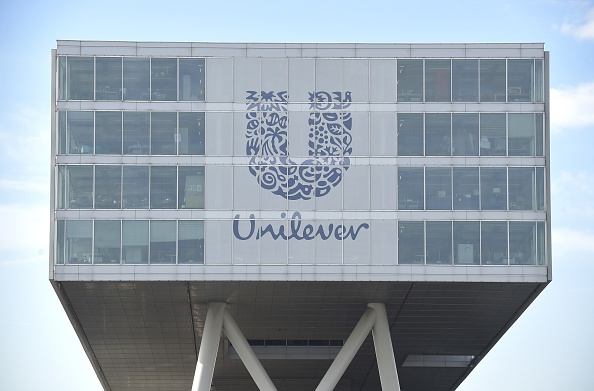Unilever beats sales forecasts as it retains India tea arm

Unilever beat analyst expectations of a drop in sales in its latest half-year results, it revealed today, as home and food sales offset declines elsewhere, it said today.
The consumer goods behemoth beat analyst expectations of a 4.3 per cent drop in underlying sales, posting just a 0.3 per cent decline for the second quarter. That helped Unilever’s shares surge seven per cent in early trading to 4,640p.
And it said that after exploring options for a sale of its €3bn tea division, it will keep its operations in India and Indonesia.
The figures
Turnover shrank 1.6 per cent to €25.7bn (£23.4bn) in the first half of the year, Unilever said, with underlying sales down 0.1 per cent.
However, underlying profit increased 3.8 per cent year on year on a constant currency basis before weak exchange rates eroded 3.2 per cent of that growth. Operating profit hit €5.1bn on an underlying basis.
Underlying earnings per share rose 6.4 per cent to €1.35 despite a negative currency hit of 3.7 per cent. And free cash flow climbed €1.3bn to €2.9bn as Unilever shored up its finances in the midst of the pandemic.
Unilever also posted a 60 basis point improvement in its operating margin to 18.2 per cent.
Why it’s interesting
Unilever saw sales in its beauty and personal care division fall 0.9 per cent year on year in the second quarter, while food sales slumped 1.8 per cent.
But the Dutch consumer goods giant managed to offset these with a four per cent climb in home care sales.
That meant overall second quarter sales slipped just 0.3 per cent against much worse expectations, to €13.3bn.
Personal care sales sank while shoppers spent far more on home comforts. Home ice cream sales shot up 26 per cent year-on-year for the Solero and Magnum maker, which saw out-of-home ice cream sales sink 30 per cent.
Unilever also posted a massive 49 per cent jump in online sales during lockdown as people ordered from home.
And hygiene product demand grew by double digits, helping North America overall sales to increase 9.5 per cent.
Ed Monk, associate director from Fidelity Personal Investing’s share dealing service, said: “Half-year numbers at Unilever today tell a tale of our lives in lockdown, with shoppers stocking up on hygiene goods, food and ice cream at the start of the pandemic.
“Unilever sales show a surge in demand for hand and home hygiene products in the six months of 2020 as well as a 26 per rise in home ice cream sales in the second quarter alone.
“Investors will be reassured that the hit from lockdown has not been bigger and their attention will no doubt return to the prospect of disposals.”
Unilever said it would hold onto its tea arm in India and Indonesia, but it is still seeking a buyer for the €2bn turnover division. It said today a deal should be complete by the end of 2021.
The Dutch company recently suggested a move to a single structure that would see it unify under its UK stock market listing. It believes this will give it more flexibility to sell the tea business amid a period of tepid sales growth.
The retail giant failed to persuade London investors to back a shift to unify under its Amsterdam listing over a year ago in a controversial move that saw shareholders line up to oppose it.
“The move to a single structure should give the group more flexibility, while the constant evaluation of core products has resulted in a spin-off of the tea business,” Interactive Investor’s head of markets, Richard Hunter, said.
What Unilever said
Chief executive Alan Jope said: “Performance during the first half has shown the true strength of Unilever. We have demonstrated the resilience of the business – in our portfolio, in a continued step-up in operational excellence, and in our financial position – and we have unlocked new levels of agility in responding to unprecedented fluctuations in demand.
“We have also taken action to strengthen the strategic future of the company by announcing proposals to unify our dual-headed legal structure, progressing the strategic review of our global tea business and making new commitments to help protect the climate and regenerate nature.
“From the start of the Covid-19 crisis, we have been guided by clear priorities in line with our multi-stakeholder business model to protect our people, safeguard supply, respond to new patterns of consumer demand, preserve cash, and support our communities.
“Our focus for the rest of 2020 will continue to be volume led competitive growth, absolute profit and cash delivery as this is the best way to maximise shareholder value.”